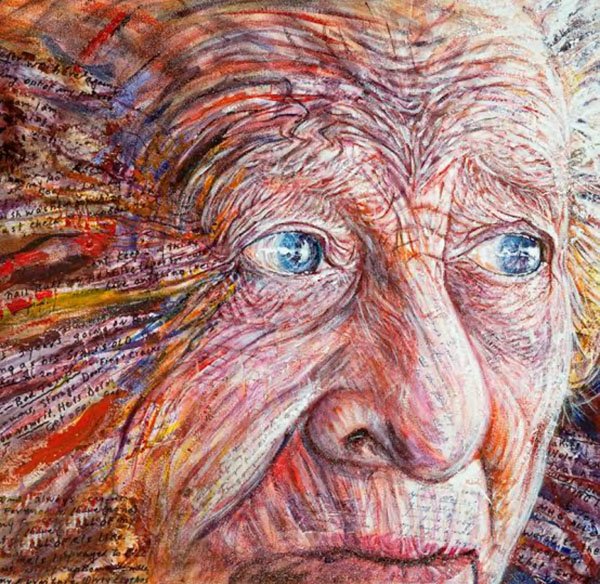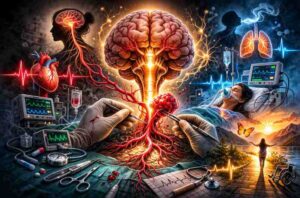An elderly man struggling with the act of remembering due to a tumour in his brain, forces a surgeon to think about how humbling the loss of memory is

The entire Raichand family sat in front of me. Not the one from Kabhi Khushi Kabhi Gham but the one from Cuffe Parade. The patriarch of the family, 77-year-old Rajeev Raichand, was surrounded by his two sons and their wives. His daughter and her teenage son filled in whatever space remained. They infused the room with a spiffy fragrance. They wore designer handbags, ripped jeans, branded tops and expensive jewellery. Fancy glares were perched on their foreheads late into the evening. It felt like I was in a luxury mall in Dubai. The old man himself was dressed in a simple white pair of trousers and shirt.
“This all started about a year ago, when our dad started having some memory issues,” the daughter began. “He would forget where he kept his glasses or keys, and we didn’t think much of it until he started mixing up the names of family members,” she went on. I do that all the time and I’m only in my early forties, I mused, refraining from voicing it aloud. “He goes to the club to play cards every evening,” one of the sons continued, “and his friends started telling me that he was getting confused between a diamond and a heart, and that he would call a club a spade and mess up the game.” In these diplomatic times, very few people call a spade a spade, I once again thought to myself, but kept silent, unsure if they were ready for some jocularity. “We finally went to our family physician, who said it was early onset Alzheimer’s or Dementia and started him off on some medication,” they said, emptying his medication from a Gucci pouch.
“Unfortunately, he kept getting worse over the next 6 months, so we saw a neurologist who asked us to get an MRI of the brain, but because he’s claustrophobic, we delayed it,” the other son added, while the wives were busy scrolling their diamond crusted phones. “Now he’s reached a point where he can barely speak a sentence without mixing up names of people and things,” he concluded, looking at his dad in despair, as though he was haunted by the ambiguous loss of a man he once knew to be his father, who was now slowly turning into a stranger.
I picked up my phone and asked him to say what it was. “It’s a computer,” came the reply. I showed him a pen. “It’s a stick,” he said, fumbling. I removed my wallet and he called it a book, I picked up a cup of coffee and he called it a flower pot. I asked him what colour my black scrubs were and he called them purple with a strange confidence. I couldn’t help but recollect what the famous neuroscientist Antonio Damasio observed in his landmark work on consciousness, that we often “use our minds not to discover facts but to hide them.”
“So, finally, did you get an MRI?” I asked them, and they nodded sheepishly in unison. “The neurologist asked us to see you,” they said, handing over the films. “I’m absolutely fine, doctor,” the old man insisted as I plugged in the films into the viewing box. “I don’t have any headache, my hands and legs are moving well, I go to the club every day, and I don’t know why Raj and Karan are so worried about me!” he said, looking at his sons. “Those are not their names,” the daughter sitting next to me whispered silently, as we could all witness the dementia fraying his mind in front of our eyes.
“He has a large tumour in his left temporal lobe, eating away at the centers of the brain responsible for speech output, comprehension, and naming,” I told the family. They seemed to acknowledge the description, having read the report before seeing me. “This clearly seems malignant to me,” I said, finally calling a spade a spade. “We have to remove what is safely possible and then give him radiation and chemotherapy, but the prognosis is not good,” I concluded firmly but lovingly. They accepted it with a calm and stoic fatalism.
“Were we late in getting an MRI?” one of them asked anxiously. I wanted to say yes, but instead told them that it is always best to get one done when we begin to notice unusual symptoms in the elderly. Even though most often these can be attributed to ageing, that is not always the case. Anyone who has a bothersome forgetfulness should be evaluated by getting an image of the head. “It is imperative to rule out a structural cause before labelling someone as having dementia,” I explained. “Most often, dementia is not reversible, so it’s best to scout for treatable causes, many of which can be identified with an MRI and some basic blood tests, the commonest being a deficiency of Vitamin B12,” I explained, so that no one felt any guilt. They left after having understood details of what the operation would entail.
Tumours don’t read textbooks. All brain tumours don’t present with headaches. Some can present with inattention, absentmindedness, and forgetfulness. All headaches are not brain tumours, but doing an MRI can resolve any conflict and pick up cancer early, allowing it to be treated better.
Action hero and Hollywood movie star Bruce Willis has now brought to the forefront this diagnosis of hisAphasia – a disorder affecting language and speech, which later progressed to affecting his cognition and leading to something known as fronto-temporal dementia. He probably had the same symptoms as Mr. Raichand but he didn’t have a brain tumour. He had atrophy or shrinkage of his temporal lobe, which too can be diagnosed on an MRI but can’t be reversed. A neurologist can help slow it down with medication and therapy, but we still don’t have a cure, just like we don’t have a cure for high-grade brain cancer.
Mr. Raichand eventually got operated by a more renowned neurosurgeon in the city and made an excellent recovery. He was getting tired from the radiation and chemotherapy, but he was finally calling a spade a spade. His family had kept in touch and was grateful for my time and for giving them a patient understanding of the condition.
I have often wondered if people who have their mind syphoned by a cognitive illness lead happier lives than people who are still all crisp ‘up there’. I think dementia is a gentle ‘letting go’ of all attachments. The bling begins to blindfold itself; the sounds begin to muffle. You initially forget things and places and then people. Eventually, you fail to remember who you are. The ego drops. You are at the mercy of anyone who is willing to fill the gaps. Everyone around you may be at their wit’s end, yet you experience nothing but joy, peace, and serenity.
I googled synonyms for forgetfulness. One of them was ‘nirvana’.




